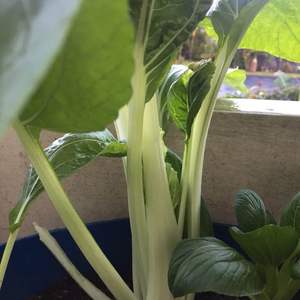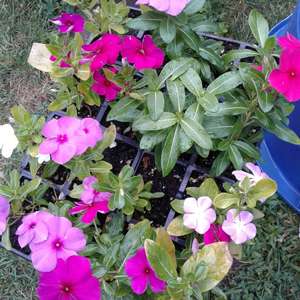文章
Miss Chen
2018年07月21日

Nothing says summer quite like zucchini for dinner. Sure, you can buy it all year, but there's something about the quality of a homegrown zucchini grown in your own garden and picked for supper that can't be found in the supermarket winter zucchinis shipped in from warmer areas. It's an easy plant to grow once you know a few of its likes and dislikes.

Step 1
Prepare the site for your zucchini seeds. If it's still dropping into the 40s at night, it's too cold for zucchini. In the garden, work some compost into the soil and mound it into hills about 12 inches high. Tamp it down well so it doesn't wash away in the next rain. Keep the hills about 3 feet apart.
Step 2
Start your seeds indoors in a simple potting soil and wait for the soil to warm, or plant the seeds or seedlings into the warm soil outside. Zucchini doesn't respond well to wet leaves or damp soil, so don't water unless the ground has become bone dry. The reason for the raised bed is to keep the moisture away from the leaves, forcing the roots to go deeper for moisture.
Step 3
Pack some hay around the seedlings to help keep the leaves dry. The plant will grow very quickly in warm weather and will use the energy collected in the large leaves to produce massive amounts of fruit. Fertilize by adding grass clippings around the base of the plant.
Step 4
Watch the plant closely when it starts blossoming. The first few days of blossoms are the male blossoms that don't produce fruit. The female blossoms will follow and will be pollinated by the male blossoms, so don't pick them.
Step 5
Pick the zucchini fruit when it's about 8 to 10 inches long for the best flavor and tenderness. Cut it off the vine with a sharp knife, being careful not to pull the vine when lifting the fruit.
Step 6
Protect your plant by handpicking any cucumber beetles. They lay their eggs under the leaves and multiply quickly, destroying the plant by sucking the sap from the vines and carrying disease.
Step 7
Plant flowers including marigolds, geraniums and dill around your squash plants. They will encourage bees and beneficial wasps to come and will help in the pollination of your zucchini blossoms, as well as killing any aphids that might come along.

Step 8
Spray your zucchini plants once a week with a solution of 1 part milk to 9 parts water. You can use any kind of milk available. This will keep your plants from getting powdery mildew, a serious threat to zucchini plants.

Step 1
Prepare the site for your zucchini seeds. If it's still dropping into the 40s at night, it's too cold for zucchini. In the garden, work some compost into the soil and mound it into hills about 12 inches high. Tamp it down well so it doesn't wash away in the next rain. Keep the hills about 3 feet apart.
Step 2
Start your seeds indoors in a simple potting soil and wait for the soil to warm, or plant the seeds or seedlings into the warm soil outside. Zucchini doesn't respond well to wet leaves or damp soil, so don't water unless the ground has become bone dry. The reason for the raised bed is to keep the moisture away from the leaves, forcing the roots to go deeper for moisture.
Step 3
Pack some hay around the seedlings to help keep the leaves dry. The plant will grow very quickly in warm weather and will use the energy collected in the large leaves to produce massive amounts of fruit. Fertilize by adding grass clippings around the base of the plant.
Step 4
Watch the plant closely when it starts blossoming. The first few days of blossoms are the male blossoms that don't produce fruit. The female blossoms will follow and will be pollinated by the male blossoms, so don't pick them.
Step 5
Pick the zucchini fruit when it's about 8 to 10 inches long for the best flavor and tenderness. Cut it off the vine with a sharp knife, being careful not to pull the vine when lifting the fruit.
Step 6
Protect your plant by handpicking any cucumber beetles. They lay their eggs under the leaves and multiply quickly, destroying the plant by sucking the sap from the vines and carrying disease.
Step 7
Plant flowers including marigolds, geraniums and dill around your squash plants. They will encourage bees and beneficial wasps to come and will help in the pollination of your zucchini blossoms, as well as killing any aphids that might come along.

Step 8
Spray your zucchini plants once a week with a solution of 1 part milk to 9 parts water. You can use any kind of milk available. This will keep your plants from getting powdery mildew, a serious threat to zucchini plants.
0
0





















